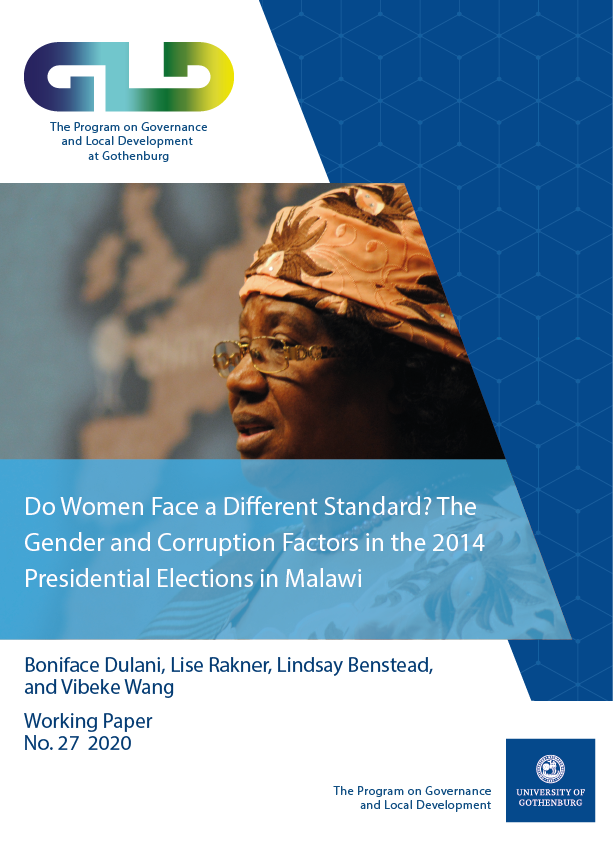No.27 Do Women Face a Different Standard? The Gender and Corruption Factors in the 2014 Presidential Elections in Malawi
Boniface Dulani, Lise Rakner, Lindsay Benstead, and Vibeke Wang
Abstract
Incumbency advantage is a key characteristic of African politics. Since the reintroduction of multiparty elections in 1994, corruption has been a persistent feature of the various administrations in Malawi. From this perspective, the incumbent president Joyce Banda of the People’s Party’s (PP) loss of the presidency after two years in office is a puzzling outcome of the 2014 elections. The paper explores why the incumbency advantage did not accrue to Banda, drawing from national public opinion surveys and focus group discussions conducted after the 2014 elections. We argue that, while faced with a major corruption scandal, ‘Cashgate’, Banda paid a heavier price than male incumbents facing corruption scandals before her. Her electoral fate is consistent with studies demonstrating that women holding political offices are scrutinized more than men and, when they transgress female gender stereotypes of incorruptibility, they are judged to a higher standard.
